Why are Japanese people who don’t like sports the thinnest and live the longest? Simple secrets from unique habits
Japan is a country with a globally recognized average life expectancy, in recent years life expectancy ranks first in the world, and is also one of the countries with the lowest obesity rates in the world. is enviable.
When many foreigners come to Japan, they will exclaim: “You can hardly see fat people on the streets of Japan!” We all know that “life is in exercise”, and regular exercise is very good for health. However, the Japanese don’t seem to like sports and usually don’t exercise.
Why do Japanese people who don’t like sports not only live longer but are also so thin? In fact, their secret to longevity is simple, and the answer is: Unique Japanese daily routine – eating. Let’s take a look at the Japanese ways of eating.
Eating patterns of Japanese people
1. Low calorie and low fat
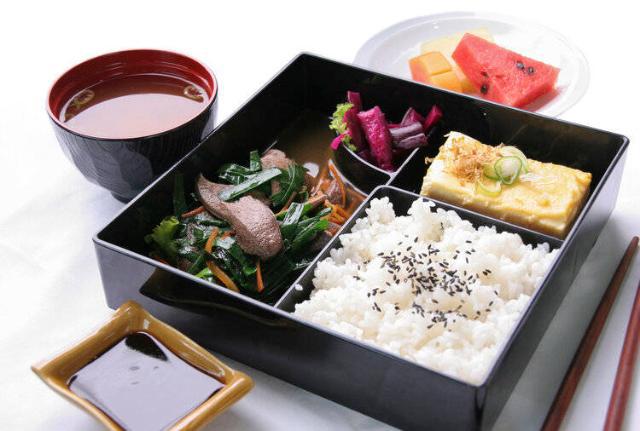
Most of the food that Japanese people eat is bland and low in calories, the daily cooking is relatively simple.
Most of the food that Japanese people eat is bland and low in calories, daily cooking is relatively simple, greasy and spicy spices are rarely used, but are mainly steamed, boiled, cooled or eaten raw. This not only maintains the original food. The taste will not destroy the original nutrition and the body will consume less fat.
Shijo Takahiko, the fourth generation descendant of Japanese Shijo-ryu, said in “Japanese Culinary Practices”: “Japanese cuisine has a principle that its deliciousness cannot mask the original taste. of raw materials”.
Although the Japanese also like to eat fried food, such as the most typical “tempura” (fried bread), the coating should not be thinner and the surface should not be too oily. Use a paper towel to absorb and no oil stains on it, this method of frying is also different from many American fast foods.
2. With a variety of ingredients
The Japanese attach great importance to 3 meals a day, the main food is fish and vegetables in each meal, diverse ingredients and “freshness is first”. Japanese women often like to buy a lot of fish, vegetables, fruits… For red meat, candy, biscuits and other high-calorie processed foods, they buy less.
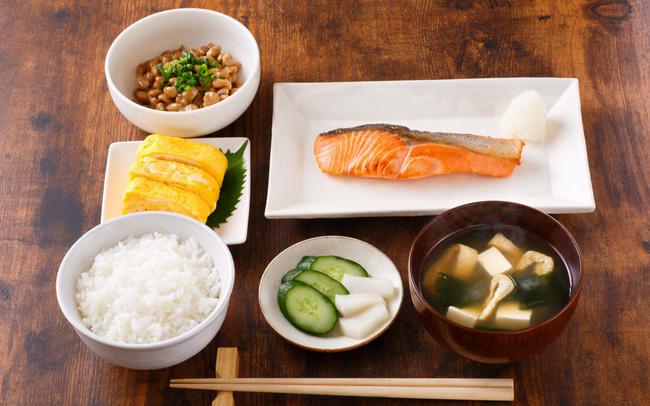
The structure of a Japanese family’s diet is: cooked fish, sashimi or grilled fish, plus cold tofu, boiled vegetables…
The Japanese Ministry of Health, Labor and Welfare advocated eating 30 kinds of ingredients a day in the “Guide to Healthy Eating and Living” in 1985. Since then, the concept of “30 kinds of ingredients” has been adopted. are widely available in Japan. The dietary structure of a Japanese family is: cooked fish, sashimi or grilled fish, plus cold tofu, boiled vegetables…, soy sauce is highly valued, and the common combination is rice with miso soup, pickles and side dishes.
In addition, Japanese cuisine has a lot of vegetables and algae, they often eat perilla and seaweed. These foods are rich in nutrients, high in protein but low in fat.
3. Small dishes, eat 80% full
Although the Japanese eat a wide variety of food but the quantity of each dish is very small, the traditional Japanese dishes represented by kaiseki prefer to use small plates as containers, even pickles or sauces, divided into portions, one small bowl for each person.
They also strictly control the amount of food, chew slowly when eating and advocate “eat ten, eight full” (load 80% of the stomach’s capacity), not only beneficial for the digestion and absorption of the stomach. It also creates a feeling of fullness for a long time. It will not put too much pressure on the stomach and ensure the nutrition and energy needed by the body every day.
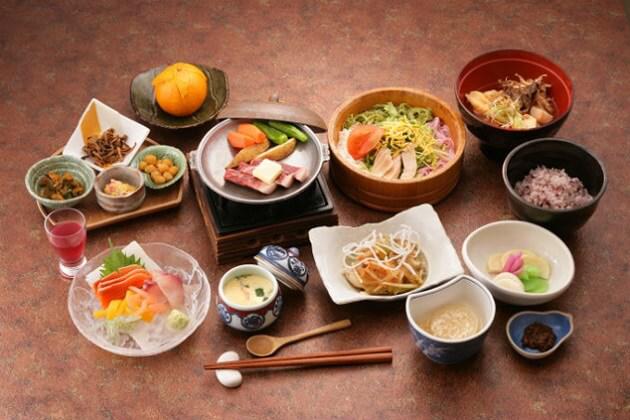
Traditional Japanese dishes are usually served on small plates.
4. Breakfast a lot and eat less outside food
Of the three meals, breakfast is not only very important for health, but also the one that causes you to gain the least weight.
In Japanese culture, breakfast is the most important of the three meals, and every morning Japanese women prepare a rich and healthy breakfast for their family. Many families let their children go out after breakfast, many bring lunch boxes and rarely eat outside.
Students and office workers choose from the public healthy lunches provided by the Japanese government, which are designed by professional nutritionists and the quality is guaranteed.
Walking habits
The Japanese love to walk or ride a bicycle, and the Japanese consider walking to be an economical and convenient means of transportation, even if it takes longer.
Taxis in Japan are divided into several classes, which can be called according to their needs, however, some people are afraid to choose a taxi because of the high cost. For example, if it takes 8 minutes by car and half an hour to walk to a place, many Japanese will choose to walk.
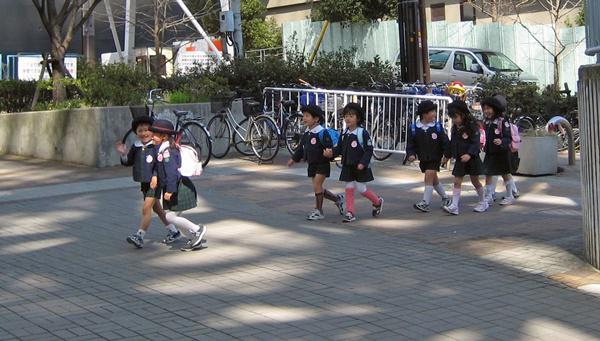
Letting children walk to school by themselves is also a way to exercise in Japan.
Japanese children basically walk to school, and there are very few who drive to school at university. Bicycles are a very popular means of transport in Japan and are the first choice for travel.
Japanese office workers spend a lot of time commuting every day, and with the development of public transport, they spend an average of an hour or two on foot, tram, and bicycle each day. A survey has found that the longer the average commute to work in Japan, the lower the chances of people suffering from disc diseases, which is due to the fact that in order to balance on a swaying tram, the body also have to exercise the body and speed up the consumption of calories.
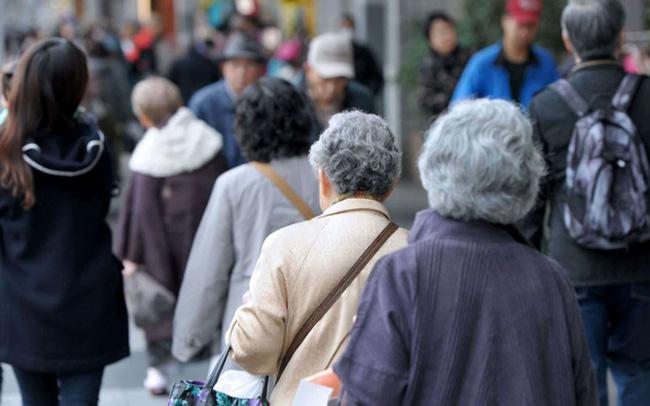
Most Japanese people choose to walk to get around every day.
Japan has a lot of hills and some roads need to go uphill and downhill. So, for the Japanese, traveling is not simply walking, but climbing up and down, which is also a good form of invisible exercise.
Low calories, fresh and varied ingredients, 80% eats, less eating out… plus you can walk without a car, here are the simple and magical secrets of longevity. Japanese.
According to the latest global life expectancy statistics released by the Japanese Ministry of Health, Labor and Welfare, Japan has become the country with the highest life expectancy in both men and women in the world. In 2020, life expectancy at birth for women in this country is 87.74 years and 81.64 years for men. |
at Blogtuan.info – Source: 24h.com.vn – Read the original article here



